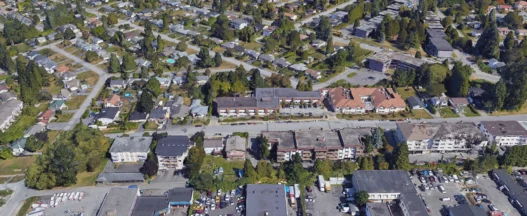
Belmont House (55 Belmont Street, Toronto) is a charitable, non-profit Christian home for seniors, offering both long-term care and retirement living options.
Like many long-term care homes, Belmont House traces its roots back to Toronto’s 19th-century welfare agencies.
Belmont House provides seniors with well-acclaimed programs, due in significant part to its charitable model. This means that profits from rental income are continually reinvested in Belmont House, and contributions from donors help provide added value not often seen in other seniors’ homes.
The Belmont House Foundation is a registered charity dedicated to supporting the efforts of Belmont House in the fulfillment of its mission, vision, and values.
Inspection Reports for Belmont House
Our research team carefully reviewed and summarized inspection reports for Belmont House. You can read the original copies of the reports in the Government of Ontario website.
November 2023 🔎
The inspection, led by Cindy Cao and additional inspectors Cindy Ma and Christine Francis, took place on October 25-27 and October 30, 2023.
- Non-Compliance with Pain Management Regulations: The licensee failed to reassess a resident’s pain using an appropriate clinical assessment tool after initial interventions did not relieve the pain. This lapse in care resulted in the resident experiencing unrelieved pain. The issue was acknowledged by the involved Registered Practical Nurse (RPN) and the Director of Care (DOC).
- Compliance Order for Plan of Care: A Compliance Order was issued due to the failure to implement a resident’s plan of care, specifically related to falls prevention and management. This issue came to light following a fall incident involving a resident, who subsequently sustained injuries and was hospitalized. A Personal Support Worker (PSW) admitted to not applying a necessary device to the resident’s wheelchair before the fall, which was part of the resident’s falls prevention plan. Both an RN and the DOC acknowledged that the device should have been in place.
The Compliance Order includes directives to retrain a PSW on the home’s Falls Prevention and Management policy, maintain a record of this education, conduct random audits to ensure the proper implementation of falls prevention devices, and maintain a record of these audits.
An Administrative Monetary Penalty (AMP) of $1,100 was issued to the licensee for failing to comply with a previous compliance order related to a similar requirement.
The report also includes information on the licensee’s right to request a review of these orders and/or the AMP by the Director and the process for appealing decisions to the Health Services Appeal and Review Board (HSARB). The licensee is required to comply with the Compliance Order by December 20, 2023, and to pay the AMP within 30 days of receiving the invoice. The report emphasizes that AMP payments must not come from resident-care funding provided by the Ministry.
May 2023 🚨
The inspection was led by Goldie Acai, and amended by the same inspector.
- Plan of Care: There was a failure to reassess and revise a resident’s care plan at least every six months or when their care needs changed. An intervention sign in a resident’s room contradicted the care plan, leading to potential inconsistent care.
- Duty to Protect: The home failed to protect a resident from neglect, as defined by the FLTCA, 2021. A delay in completing a diagnostic test for an injured resident led to prolonged symptoms and a delayed diagnosis.
- Falls Prevention and Management: After a resident’s fall, the required post-fall risk assessment tool was not used, contrary to the home’s policy, putting the resident at risk for repeated injury.
- Skin and Wound Care: The home failed to perform necessary skin assessments using appropriate tools. One instance involved a resident returning from the hospital without a same-day assessment, and another involved a resident with a new skin injury.
- Pain Management: A resident continued to experience pain despite interventions, but the required pain assessment was not conducted.
February 2023 🚨
An inspection report dated February 14, 2023, under the Fixing Long-Term Care Act, 2021, for Belmont House in Toronto, led by Parimah Oormazdi with additional inspectors Rajwinder Sehgal and Stephanie Luciani, identified several areas of non-compliance.
- Expired Disinfectant Wipes: The licensee had failed to ensure cleaning and disinfection in accordance with manufacturer’s specifications. Expired PREempt disinfectant wipes were found, posing a risk of infection transmission due to decreased effectiveness. The issue was remedied on February 2, 2023, with the expired wipes being removed.
- Infection Prevention and Control Program: The licensee failed to ensure staff participation in the implementation of the home’s infection prevention and control program related to PPE. An RN student exited a resident’s room without properly removing gloves, potentially increasing the risk of spreading infectious disease.
- Infection Prevention and Control Program: There was a failure to ensure staff performed hand hygiene before and after resident and resident environment contact as required by routine practices. An RN student did not perform hand hygiene upon exiting a resident’s room, increasing the risk of infection transmission.
- Plan of Care: The licensee failed to include interventions in a resident’s initial plan of care to address their responsive behaviors. This oversight may have increased the risk of falls or injury for the resident, as staff were not informed of necessary interventions.
July 2022 🔎
The inspection, conducted by Ivy Lam and Ryan Randhawa, focused on follow-up actions and assessed compliance in areas related to safe transferring devices and techniques and fall prevention interventions. The report noted compliance with previously issued orders.
- Non-Compliance with COVID-19 Assessments: The licensee failed to conduct daily assessments for COVID-19 symptoms, including temperature checks, as mandated by the Minister’s Directive. The report highlighted that residents in several areas of the home did not receive daily assessments for COVID-19 over multiple days in April, May, June, and July 2022. This lapse in protocol posed a risk to timely identification of residents with COVID-19.
- Infection Prevention and Control Program Non-Compliance: There was a failure in following the standard issued by the Director with respect to Infection Prevention and Control (IPAC), particularly regarding point-of-care signage. A resident showing symptoms of COVID-19 did not have the correct droplet/contact precautions signage posted in their room. Consequently, the necessary personal protective equipment (PPE), including eye protection, was not available outside the resident’s room. This incorrect signage posed a risk of staff not using appropriate PPE.
March 2022 🚨
The inspection, conducted by inspectors Kim Byberg and Jessica Bertrand, was a complaint inspection.
- Non-Compliance in Plan of Care: The licensee did not ensure that the care outlined in a resident’s plan was based on their needs and preferences. A complaint included concerns about staff not positioning a resident properly as recommended by a health professional. These specific positioning instructions were not documented in the resident’s care plan, leading to a risk of incorrect interventions by staff.
- Failure in Medication Administration: The licensee did not administer medications to a resident in their preferred manner as stated in their plan of care. This deviation from the specified method of medication administration could pose a safety risk to the resident.
- Non-Compliance in Administration of Drugs: The licensee failed to ensure prescribed medications were administered as directed by the prescriber. There was an incident where a resident did not receive their scheduled medication because the physician’s order was incorrectly transcribed into the electronic medication administration record system, posing a risk of harm to the resident.
In response to the findings, the licensee was requested to prepare a written plan of correction to ensure compliance with the required standards, particularly in ensuring care plans reflect residents’ needs and preferences and in the proper administration of medications.
January 2022 🚨
The inspection was conducted by inspectors Joy Ieraci and Julieann Hing.
- Non-Compliance in Safe Transferring Devices and Techniques: The inspection found that the licensee failed to ensure staff used safe transferring devices and techniques for residents #001, #007, and #005. Specific issues included incorrect sling sizes for mechanical lifts and leaving residents attached to lifts unsupervised, contrary to best practices and home policies.
- Failure to Forward Complaints: The licensee did not forward written complaints concerning the care of residents #001 and #002 to the Director as required. This involved a delay in addressing complaints and potential neglect or harm.
- Non-Compliance in Infection Prevention and Control: Staff were found not to participate in the implementation of the home’s infection prevention and control program. This included instances of improper mask usage, inadequate hand hygiene, and incorrect personal protective equipment practices.
- Issues in Dealing with Complaints: The licensee failed to respond appropriately to written complaints about the care of residents. This included not starting investigations immediately where harm or risk of harm was alleged, and not providing adequate responses to complainants.
In response to these findings, the inspectors issued orders for compliance, including ensuring safe transferring techniques for residents, proper handling of complaints, and adherence to infection prevention protocols. The licensee was required to undertake specific actions such as re-training staff, documenting sling sizes in care plans, and ensuring all staff participate in the home’s infection prevention program.
January 2021 🔎
The inspection conducted by Julieann Hing focused on addressing a complaint related to the prevention of abuse and neglect and reporting and complaints.
- Safe and Secure Environment: The licensee failed to ensure a safe and secure environment for a resident who sustained a fall from their mobility device. The device was not functioning properly, and the resident, who exhibited responsive behaviors and required a specific mobility device for safety and comfort, fell and was injured. The home’s failure to address the malfunctioning feature of the mobility device led to the fall and subsequent injuries.
- Plan of Care Compliance: The care provided to a resident did not align with the specified plan of care. The resident’s plan directed staff to transfer them using a mechanical lift with two staff members, as the resident was unable to bear weight. However, staff interviews revealed inconsistencies in following this plan, with transfers being conducted by one staff member, two staff members, or using the mechanical lift. This non-compliance with the care plan put the resident at risk of falls and injuries.
- Reassessment and Revision of Care Plan: There was a failure to reassess and revise a resident’s plan of care concerning their bedtime. The resident’s preferred bedtime, as indicated in their care plan, was not being adhered to by the staff. Additionally, a request made by the resident’s Substitute Decision-Maker (SDM) for a change in the resident’s bedtime routine was not implemented, and the care plan was not updated accordingly.
In response to these findings, the inspector issued written notifications of non-compliance and requested voluntary plans of correction to address the issues.















